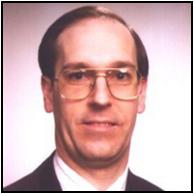 |
|
| Volume 17 Number 6 June 2015 | Page 9 |
Mark McWhorter
 Paul told the Philippians that all the great and prestigious things about his life under the Old Law were nothing to him anymore. His Jewish heritage and associations added up to almost nothing in comparison to the blessings in Christ. In Philippians 3:7, he used the perfect tense in making his point. This means that he had made the decision regarding his Old Testament heritage at one point in time, and that the result of his decision was continuing. He did not have to make the decision over and over again. When he was convinced that Jesus was Lord and Savior, he made the great decision. Further, he had never regretted making it.
Paul told the Philippians that all the great and prestigious things about his life under the Old Law were nothing to him anymore. His Jewish heritage and associations added up to almost nothing in comparison to the blessings in Christ. In Philippians 3:7, he used the perfect tense in making his point. This means that he had made the decision regarding his Old Testament heritage at one point in time, and that the result of his decision was continuing. He did not have to make the decision over and over again. When he was convinced that Jesus was Lord and Savior, he made the great decision. Further, he had never regretted making it.
In verse eight, Paul wrote, “Yea doubtless, and I count all things but loss for the excellency of the knowledge of Christ Jesus my Lord: for whom I have suffered the loss of all things, and do count them but dung, that I may win Christ.” Paul said the knowledge of Christ is absolutely excellent. It overpowers anything under the Old Law. Paul used the present tense with the word “count.” This means that from the moment he put on Christ until the moment of his writing the Philippians this letter, he was convinced of his decision that the old things were much less than the blessings in Christ.
False Jewish teachers followed Paul almost everywhere he went. Every time he had to refute their teachings, he had to speak about his heritage and the Old Law. So, he was constantly reminded of what he had given up and had left behind. Yet, it did not make him sad. He did not regret it. He was happy to tell others about his wonderful decision. Further, he was happy to tell others that they needed to give up things for the excellency of the knowledge of Jesus.
Study your Bible. Learn all you can about our wonderful Savior, Jesus Christ. If any of this is hard to understand, ask an adult to help you.![]()
What Will You Be
Doing When the End Comes?
Robert Lupo
 Paul, the apostle, wrote, “Then cometh the end, when he shall deliver up the kingdom to God, even the Father; when he shall have abolished all rule and all authority and power” (l Corinthians 15:24). There is no doubt about it, Jesus is coming. When He comes, the end of the world will also come – at which time Jesus will deliver the kingdom, which is the church, to the Father (Matthew 16:18-19; Colossians 1:13-18). Have you ever thought about what you might be doing when He does come? Ultimately, nobody could possibly know the answer to that question, because nobody knows when the end will come (Matthew 24:35—25:46; 1 Thessalonians 5:1-11; 2 Peter 3:8-10).
Paul, the apostle, wrote, “Then cometh the end, when he shall deliver up the kingdom to God, even the Father; when he shall have abolished all rule and all authority and power” (l Corinthians 15:24). There is no doubt about it, Jesus is coming. When He comes, the end of the world will also come – at which time Jesus will deliver the kingdom, which is the church, to the Father (Matthew 16:18-19; Colossians 1:13-18). Have you ever thought about what you might be doing when He does come? Ultimately, nobody could possibly know the answer to that question, because nobody knows when the end will come (Matthew 24:35—25:46; 1 Thessalonians 5:1-11; 2 Peter 3:8-10).
However, what if, when the Lord comes, He comes on a Sunday morning, Sunday evening or Wednesday night? What would you say then? There are some people that you could say, without a doubt, “I know exactly where they would be and what they would be doing; they would be at church (i.e., in the assembly) gathered together with other saints, worshiping God and studying His Word.” While some can find almost any excuse for missing church, these would not miss services for anything, not even and especially the end of the world.
What will come of those who have little to do with the kingdom or church now? Will they suddenly become interested at Christ’s coming? No doubt, “Yes.” In Matthew 25:1-13, Jesus taught that when He comes for the kingdom of heaven (the church), some will be unprepared. The parable is about Christians who had made some preparation to enter heaven, but they did not make full preparation. Suddenly, they will want to be with faithful saints in heaven, but the door will be shut!
Obviously, going to church or assembling with the saints does not comprise all the preparation that one must make. Yet, one cannot make proper preparation for heaven if assembling with the church is not important to him or her. Jesus is coming for the church! Will you be ready?![]()